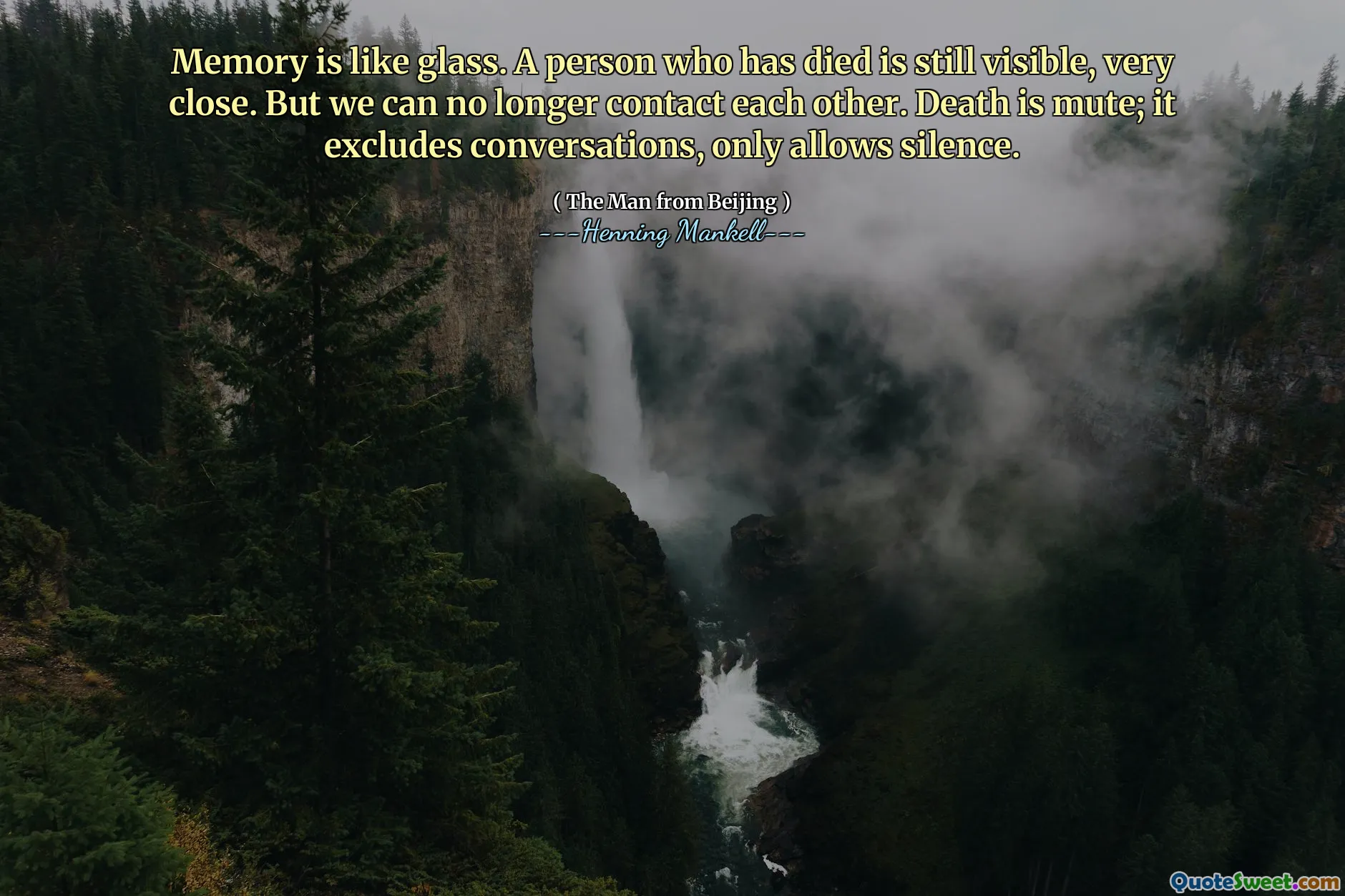
Memory is like glass. A person who has died is still visible, very close. But we can no longer contact each other. Death is mute; it excludes conversations, only allows silence.
In Henning Mankell's "The Man from Beijing," memory is compared to glass, suggesting that while the memories of those who have died remain clear and present, the connection between the living and the deceased is irrevocably severed. The image of glass illustrates how these memories can be seen and felt, but they cannot be physically engaged with, highlighting the pain of loss.
The quote further emphasizes that death creates a silence that can no longer support dialogue. This silence is a powerful reminder of the absence of the deceased, reinforcing the idea that while memories may linger, the opportunity for communication has vanished, leaving behind a void filled only with muted reflections.











